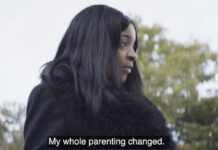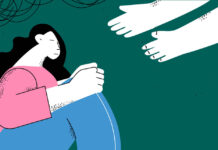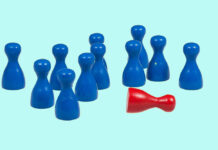Mad in Puerto Rico
Since Puerto Rico is, in essence, a colony of the United States, colonialism has a heavy impact on mental health and the healthcare system.
The Cat Is Out of the Bag
I’ve healed; not overnight and not without effort, but today I feel the vitality that I had before my psychiatrization began as a teen.
A Mad Perspective on IFS Training
I became concerned that the reason I was unable to hear from my parts was because I take antipsychotic medication.
Protecting the False Narrative About Antidepressants
We have a mental health crisis because the existing depression drug-focused approaches are not working.
Goodbye, Brian Wilson
I propose to call any psychiatrist-patient bond “Landy syndrome” after psychiatrist Eugene Landy, the captor, abuser and oppressor of Brian Wilson.
Madness Is a Human Phenomenon
We can see how complicated it is to be human and how much human suffering (called psychopathology) is a complex and unique human phenomena.
Why Psychotherapy Should Busy Itself with Building Character Strengths, Not Reducing Symptoms
Clients want outcomes like self-understanding, self-agency, and social engagement from therapy.
It’s a No-Brainer: Living Proof We Are More Than Our Parts
Terms like “reward systems,” “emotion centers,” and “decision circuits” suggest precision. But these aren’t discoveries—they’re metaphors.
Soteria—A Human Response to a Human Problem
The Soteria model has gained recognition in Israel, with more than 35 such "stabilizing houses" now operating, most publicly funded.
From Wounds to Labels to “Mental Illness”
We don’t need to understand someone’s entire past to exercise a little emotional humility—to see behavior as adaptation, not brokenness.
Waking Up to Your Emotions 101: The Other Side of Psychiatric Drug Withdrawal
Many people find themselves stuck: withdrawal symptoms might have passed, but emotionally, life feels overwhelming.
Beyond Medicalization: Psychedelic Therapy and the Promise of Community-Based Healing
Will psychedelics represent something different, or will we recreate the same problematic paradigms?
Where Is God When I Cut Myself? Soul Care and the Voices of Self-Injury...
Care, as I’ve come to see it, is about sitting beside someone when the pain is too loud for words and not leaving.
Therapists, Neutrality Is No Longer an Option — Politics Is Tearing Us Apart
To my fellow therapists: stop playing neutral. Stop minimizing systemic trauma to keep your comfort intact.
Inertia as Neuroceptive State Beyond the Pathologizing Lens
Reframing inertia as an adaptive, biologically based survival response offers a powerful alternative to traditional deficit-oriented models.
A Relationship Imbalance, Not A Chemical Imbalance
With DSM-III, everything we knew about relationship dynamics was buried under the tidal wave of the pharmaceutical industrial complex.
Between Diagnoses and Dialogue: The Silent Conflict Between Psychiatry and Psychology
In contrast to psychiatry's biomedical model, for many psychologists, care begins with listening rather than labelling.
Depression Caused by Kissing? Psychiatry Hits New Low with Clickbait Fear-Mongering
Instead of being laughed at, this study is being promoted across outlets like Vice and The Colbert Report.
The Three Ages of Treating Madness: Confinement, Conversation, Chemicals
There was a time when therapy did something dangerous—it listened. Suffering wasn’t seen as a malfunction, but as a story worth hearing.
Depsychiatrization: Dispelling Harmful, Diagnostical Self-Concepts in Therapy and Community Health Work
Depsychiatrization is a way of reclaiming the right to be understood through a nonpathologizing, rehumanized lens.
Screen Time for Children Under Three: A Trigger for Virtual Autism?
"A Stone Unturned" weaves together the research and stories of autism symptoms reversed by removing screens and adding more parent engagement.
Depression: Biological or Psychological?
Scientific evidence tells us that depression is psychological and should be treated by behavior therapy, not by antidepressant drugs.
“Life Unworthy of Life”: Historical Amnesia, Ausmerzen and the Rhetoric Surrounding Autism
The idea that human value can be reduced to economic contribution is not merely reductive—it is deeply dangerous.
Life in the Hospital Before Deinstitutionalization
Accounts of deinstitutionalization fail to describe recovery, peer support, or what it was actually like to be in the state hospitals.
Fighting Forced Treatment in Court: A Victory to Be Celebrated
It is very difficult to get off a mental health commitment. The counties fight tooth and nail to keep people in the system.

































